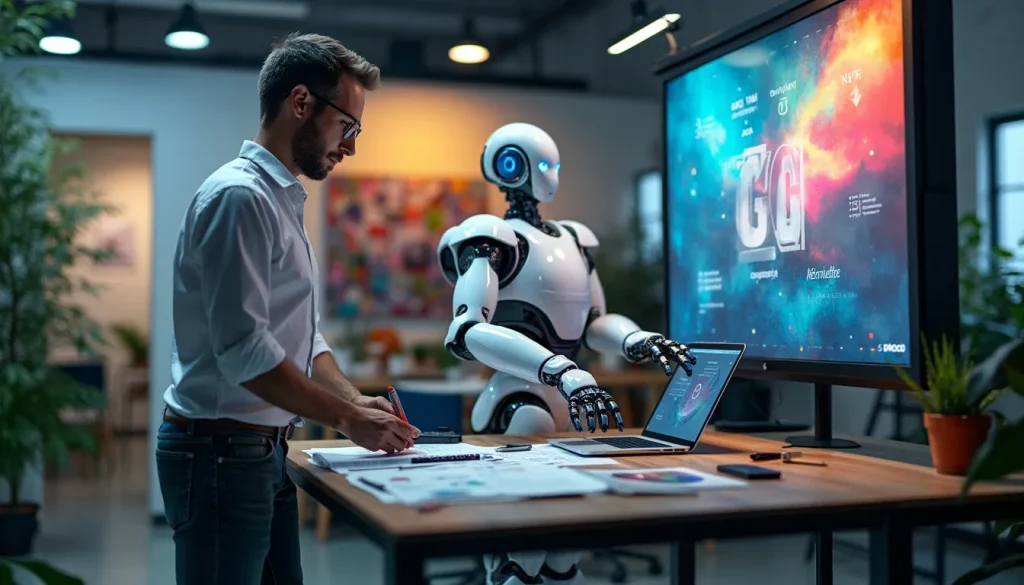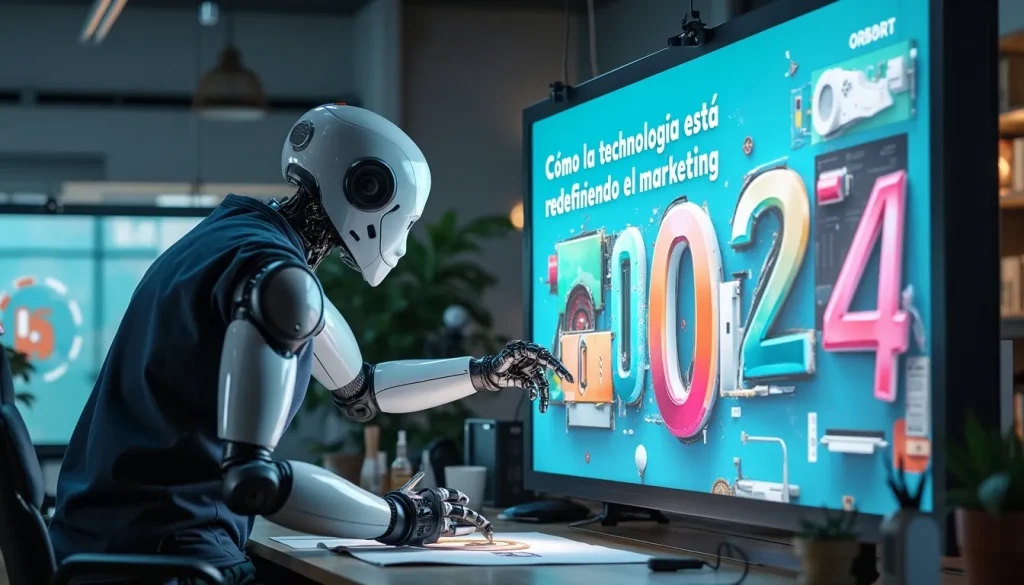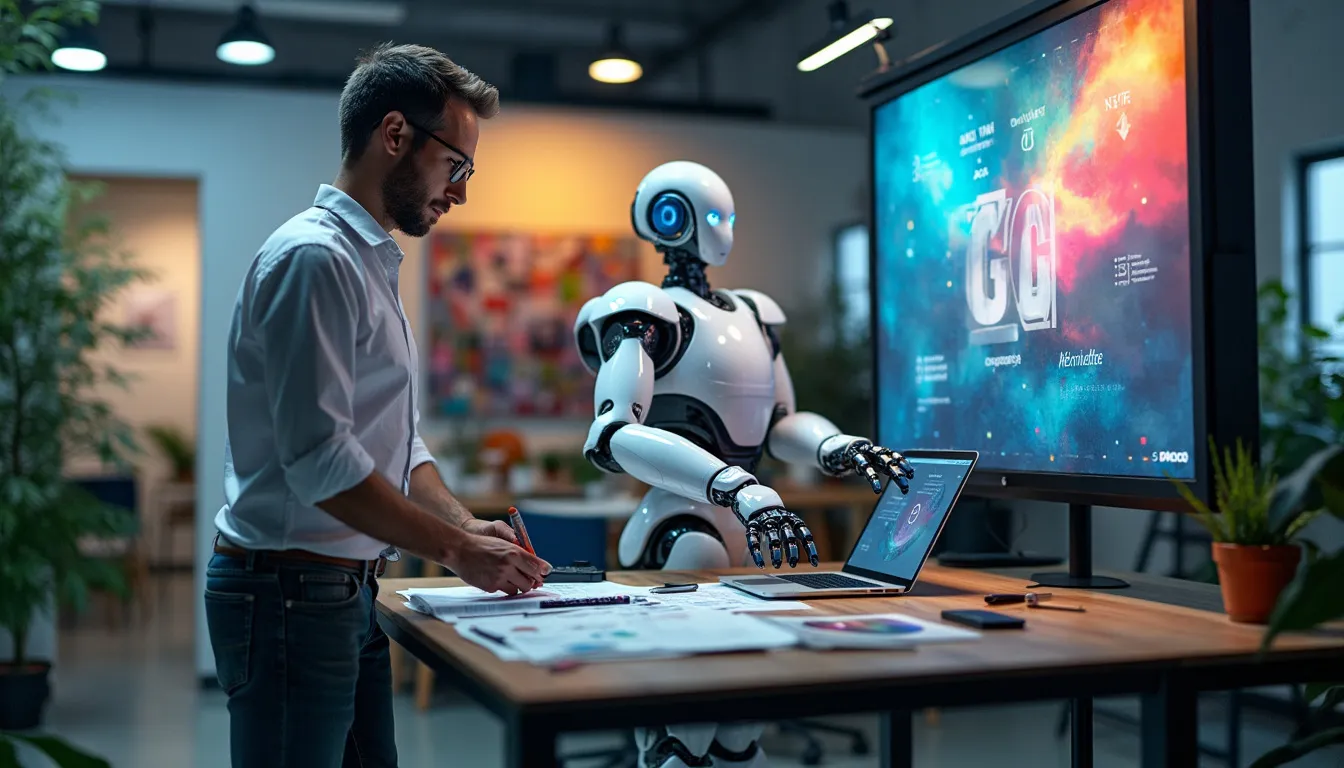In a world where automation and artificial intelligence are transforming entire industries, the programming and marketing sectors are no exception. Recent projections indicate that the employment of programmers in the United States will fall by 11% between 2022 and 2032, with a loss of 147,000 jobs. But it's not just programming that's suffering; Traditional marketing is also seeing a significant decline. In 2024, ad agencies have lost 5% of their jobs due to a 15% drop in analog marketing revenue.
How are these trends affecting other marketing roles? Which profiles are being replaced by technology?
Recently We publish a post about layoffs in the programming sector in the United States, which has raised many questions. In the post, we mentioned an 11% drop in programmer employment between 2022 and 2032, which equates to a loss of 147,000 jobs. This is already happening and also affects technology companies such as Meta and Amazon, and is reflected in the Spanish and Portuguese markets.
It's surprising because it was thought that the programming sector would grow indefinitely, but now it faces a decrease in the demand for jobs. This also affects the marketing sector. In the United States, ad agencies have lost 5% of jobs in 2024 due to a 15% drop in revenue from traditional marketing. Automation, artificial intelligence, and the no-code phenomenon are displacing traditional roles such as graphic designers, copywriters, and social media managers.

For example, graphic designers have lost 4% of jobs due to marketing tools. Generative Artificial Intelligence of images such as DALL-E and MidJourney. Content writers are also being replaced by tools like ChatGPT, and it is estimated that 63% of text content in 2024 will be created with artificial intelligence. Social media managers see that 47% of their work is already done in an automated way.
In terms of SEO, artificial intelligence improves productivity and quality of work by 60%. Video editors are also being replaced by automated editing tools, with a 20% growth through 2028. Analog marketers are being replaced by digital strategies and automation.
Universities are adapting their programs to train leaders in integrating artificial intelligence and automation into marketing strategies. For example, Stanford offers a Digital Transformation program, and Harvard has a Digital Marketing Strategy program. These programs seek to train professionals in digital marketing, technology, and digital transformation skills.
Large strategic consultancies highlight the need for professionals with mixed skills in digital marketing and technology. The demand for these hybrid profiles is on the rise, and companies are hiring them to lead the integration of technology into their marketing strategies.
In terms of entrepreneurship, 43% of new startups in the United States are focused on technology and digitalization. Universities also offer advanced programs in entrepreneurship and digital innovation. The demand for skills in digital innovation is high, and business leaders are looking to drive innovation in their companies using artificial intelligence and automation.
At Proportione, we believe that the success profile for a successful digital transformation combines marketing, technology, and entrepreneurship skills.

This is the current situation
The traditional marketing industry is facing an unprecedented transformation, driven by the advancement of technology, artificial intelligence (AI), and automation. This technological revolution is reshaping the labor market, affecting both programmers and marketing professionals, with a significant impact on job stability.
In the United States, programmers have seen an 11% drop in employment projected for the next decade, with an estimated loss of 147,000 jobs. This phenomenon, which initially surprised many by thinking that the demand for programmers would continue to increase, is already affecting other sectors. In fact, the same is happening in the field of traditional marketing.
So far in 2024, ad agencies in the U.S. have laid off 5% of their employees, as a result of a 15% decline in revenue from analog marketing companies. This drop is mainly due to the rapid adoption of digital technologies, which are replacing traditional methods. Automation and artificial intelligence are taking over tasks that previously required human intervention, directly impacting roles that have been mainstays in ad agencies.
One of the most affected roles is that of graphic designers. In the U.S., 4% of these jobs have already been lost, and this number is expected to continue to rise as generative image AI, such as DALL-E and MidJourney, is refined and more widely adopted in the industry. These tools allow businesses to create high-quality images without the need to hire a visual designer, thus reducing the demand for these types of professionals.
Another role that has taken a big hit is that of content writers. By 2024, it is estimated that 63% of textual content will be created using artificial intelligence, with tools such as ChatGPT leading the way in the production of text quickly and efficiently. This displaces traditional copywriters, who are forced to adapt or specialize in areas where AI cannot yet compete.
Similarly, social media managers are seeing automation Taking control of your work . Currently, 47% of social media management is done in an automated way, using algorithms and bots to schedule posts, interact with the public, and analyze results. This advancement is reducing the need for human intervention in routine tasks, leaving only the most strategic functions in the hands of professionals.
The impact of technology also extends to SEO specialists, who are being replaced by auto-optimization algorithms. It is estimated that the use of AI in SEO can improve productivity by 60%, optimizing keywords, meta descriptions, and other crucial elements for search engine optimization.
Finally, video editors are also feeling the pressure of automated editing tools, which are expected to grow by 20% annually until 2028. This software allows video editing faster and more efficiently, reducing the need for human editors and speeding up production processes.
The future of marketing: the transformation towards hybrid profiles
Digital transformation is not only displacing traditional roles, but it is also giving rise to a new demand for professionals with hybrid skills, who combine knowledge in marketing, technology, and strategy. These profiles are increasingly valued in the job market, especially as companies look to adapt to an environment where automation and artificial intelligence are key components.
Large strategic consultancies, such as McKinsey, Boston Consulting Group (BCG) and Bain, are leading the way in identifying and hiring these new profiles. These consultancies have identified a significant deficit in advanced digital skills in today's job market. Specifically, 66% of business leaders report that their employees lack the necessary skills to use emerging technologies such as artificial intelligence effectively. This skills gap is driving demand for hybrid roles that can lead the integration of technology into marketing strategies and the digital transformation of businesses.
In response to this demand, the most prestigious universities in the world are adapting their programs to train these professionals of the future. For example, Stanford offers the Digital Transformation: Leading Organizational Change in the Age of AI , which empowers leaders to integrate AI and automation into their business strategies. This program is designed to meet today's market challenges, where 67% of business leaders are actively exploring ways to implement artificial intelligence in their daily operations.
Similarly, the University of Oxford has launched the Digital Marketing: Disruptive Strategy , which focuses on implementing disruptive marketing strategies using emerging technologies. This program is aimed at marketers who need to adapt to the new realities of the digital market, where personalization, data analysis, and digital community management are changing the rules of the game.
Harvard, on the other hand, offers the program Digital Marketing Strategy , which is geared towards developing digital marketing strategies focused on customer acquisition and retention. This program emphasizes the use of paid and organic media, aligning with current growth trends in digital marketing, where digital ad spending has increased by 58.7% in 2022 and is projected to reach 62.6% in 2024.
The opportunity for entrepreneurs and innovators
The profile of the digital entrepreneur is another of the great beneficiaries of this transformation. In a world where more than 43% of new startups in the United States are focused on technology and digitalization, the ability to innovate and lead projects that integrate marketing, strategy, and technology is crucial. This type of profile is not only in demand by large companies, but is also essential for those who want to launch their own business initiatives in an increasingly competitive and digitized market.
In addition, entrepreneurs with skills in digital innovation and marketing have a significant advantage in creating strategies that leverage artificial intelligence and No-code tools . These tools allow entrepreneurs to develop technological solutions without the need for advanced programming knowledge, giving them the flexibility to innovate and scale their businesses quickly and efficiently.
The high demand for digital innovation skills is also reflected in the labor market, where two-thirds of business leaders are looking for ways to drive innovation in their companies. This trend is driving academic institutions and companies to adapt quickly, offering training and opportunities that prepare professionals to lead in this new digital era.
Conclusions
Digital transformation is rewriting the rules of marketing, displacing traditional roles and creating a growing demand for hybrid profiles that can integrate strategy, marketing, and technology. Companies and professionals who adapt to these new realities will be better positioned to take advantage of emerging opportunities in an ever-evolving market. Whether through advanced educational programs or through the adoption of new technologies in the business environment, the future of marketing belongs to those who can combine creativity, innovation, and strategic thinking in a digital environment.
